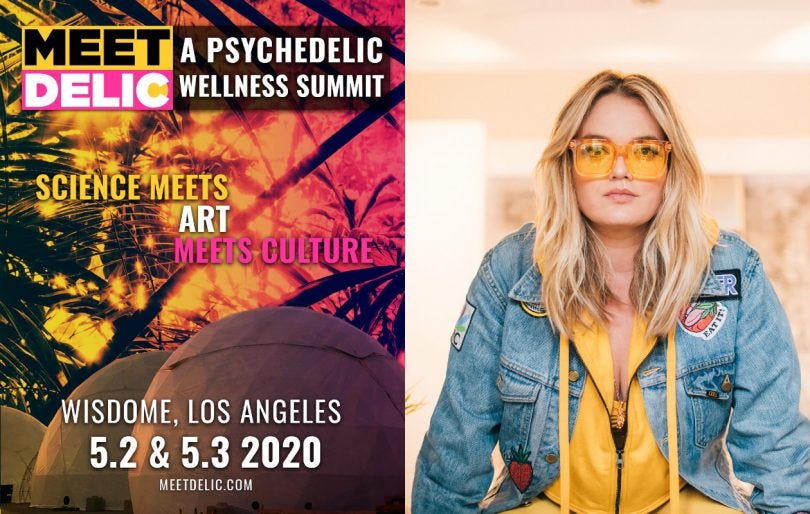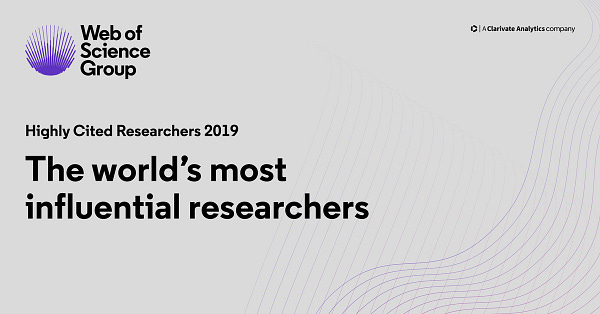Ram Dass, This is your Brain on Acid, Psychedelica Inc., Therapist Training worth your money, AND MORE
Psychedelic News Stops for No One, Including Jesus Christ
Happy Holidays,
I hope you’re all enjoying time with family—but if you’re not, and you want a solid 8-15 minutes of diversion here’s this week’s roundup of news oozing out of the gestating pupa that is the psychedelic ecosystem.
TL;DR
Ram Dass Passing
Eleusis’s first date w/ LSd
Meet Delic, she’s down to party
Want to help? Become a psychedelic therapist
Psychedelic science makes the NY Times (SO GET OFF MY BACK MOM!)
USona’s Charles Raison is legit, aka a baller, aka take him seriously, he’s smart
The future of psychedelic medicine: Couples therapy & smoking cessation, and more (hint: everything)
And.. more (but not that much it’s Christmas)
Tribute to Ram Dass
Been There, Done That
In 1967 we lost Richard Alpert. On Sunday we lost Ram Dass.
Ram Dass is a legend in the overlapping circles of psychedelics, meditation, Eastern spirituality, having been kicked out of Harvard along with Timothy Leary, Alpert/Dass sped up the interest and research in LSD and psilocybin before prohibition and before heading East to India in the early wave of Weserner’’s Eastward pilgrimage.
A lovely tribute can be found here.
Ram Dass, who along with Timothy Leary, popularized the use of LSD and psilocybin in the ’60s, turned away from psychedelics and focused on meditation and spiritual cultivation when he gave his Guru, Neem Karoli Baba a large LSD dose which had no effect.
Ram Dass’ shunning of such powerfully transformative molecules could act as a reminder to those of us all hot and bothered with the current surge in psychedelics that the molecules are important, useful and helpful but the goal is transformation.
And transformation comes from accessing particular states of consciousness that are possible without the use of psychedelics and Dass seemed to be a fervent, but sympathetic, advocate for a disciplined spiritual life devoted to love:
“These medicines will allow you to come and visit Christ, but you can only stay two hours. Then you have to leave again. This is not the true samadhi. It’s better to become Christ than to visit him – but even the visit of a saint for a moment is useful.” Then he added, “But love is the most powerful medicine. For love slowly transforms you into what the psychedelics only let you glimpse.”
This underpins the importance of therapeutic support, set and setting and integration and the need for education of patients and therapists not just manufacturing, marketing and distribution from future psilocybin and psychedelic companies.
This view is also a reflection of the time. LSD and Psilocybin, while having undergone extensive research in a psychiatric setting, I don’t know how connected that was to its use in the counterculture.
There was an emphasis on the spiritual and effects and the capacity to change one’s political outlook but I don’t know if the above quote from Ram Dass would be different if he saw MAPS phase II data on PTSD, a condition that people simply want to escape. They are not necessarily hoping to reach the top of enlightenment mountain.
Business
“I missed out on Cannabis—I’m not missing out on psychedelics”
“I’ve been through this with Cannabis—I know what I’m doing”
“Please don’t fuck this up”
These are the three archetypes of anticipation that I can see expressed in the early psychedelic ecosystem from entrants who are anticipating widespread decriminalization and legalization and preparing the platforms to satisfy the demand.
I’d love to hear from readers if you agree with this sentiment or have a differing opinion — send your thoughts to TheTripReport@protonmail.com
First Date: This is Your (Old) Brain on Acid
After a first date you may not know that you want to marry the person, but you can know for sure that you don’t.
The early phase of scientific research is just like the early phase of dating—you’re just trying to figure out if it works in a limited sense. You get drinks, dinner, maybe a movie.
You don’t go ring shopping, you just want to know if you tolerate each other.
Likewise scientists may not want to unleash a full dose of LSD on older adults to see if it has any effect on neurodegenertion or dementia, you just want to know if people can tolerate it.
A successful first date is not “Oh my god I want to have that guy’s baby” it’s “OK he’s tolerable”
Eleusis announced that they had a great first date with subperceptual dosages of LSD in older adults and it was well tolerated.
A second date is in order.
Meet Delic, she enjoys long walks on the beach, magic mushrooms and Mike Tyson
The Delic Corp, which claims the distinction of the first psychedelic corporation, is throwing a party with Lamar Odom and Mike Tyson in Los Angeles in May.
From a High Times piece on the Delic and founder Jackee Stang
“on May 2nd and 3rd, The Delic will host Meet Delic, a downtown Los Angeles conference designed to introduce laypeople to the powers of psychedelics through info-taining expert presentations and recognizable names as guest speakers. Lamar Odom and Mike Tyson are among the announced collaborators, both of whom used psychedelics to help recover from high profile addiction issues.”
New Psychedelic Therapist Training Opportunity
Elizabeth Nielson and Ingmar Gorman formerly of The Center for Optimal Living an NYC based psychotherapy practice that specializes in addiction and mental health issues and psychedelic integration.
Nielson and Gorman have long been involved with MAPS’ MDMA for PTSD research and are the co-principal investigators at the New York City site of the Phase 3 trial.
If you are seeking to become a psychedelic-assisted therapist this looks like an excellent opportunity.
The question remains, however, will such training be sufficient to work for a psychedelic clinic in the future?
As far as I can tell, the best route for aspiring therapists is MAPS’ training — which is a much bigger commitment than the Fluence programs at the moment but will be the stepping stone to the most immediate opportunities.
Compass Pathway’s Training Program
In a recent interview with George Goldsmith, he indicated that Compass’ therapist training program has already trained 50 participants. It got me thinking about how they’re going about their process and found the training portal on their site. Many a Trip Report reader are aspiring Psychedelic Therapists, perhaps exploring this route is an option.
And of course, I would love to hear from those of you who have completed training from MAPS, Usona, or Compass.
Impact
NY Times Gives a Nod to Psychedelics in Annual Review
The New York Times included Psychedelic science as a rare positive take away from 2019 along with the frieghtening issues of the ongoing opioid epidemic, a new form of tuberculosis, the return of measles, vaping and the rise of drug resistant germs as the most notable stories in Health and Medicine from 2019:
"Scientists are also starting to test the power of psychedelic drugs to treat a range of mental health problems. In September, Johns Hopkins Medicine announced the opening of the Center for Psychedelic and Consciousness Researchto study compounds like psilocybin and LSD. One study at the center has already found that psilocybin can be more effective at helping people quit smoking compared with using a nicotine patch.”
Also see: Decriminalization made the #1 spot in the Denver Posts’ most popular stories of 2019
Usona’s Charles Raison Recognized by Web of Science as a Highly Cited Researcher
Web of Science is one of the major Databases that hosts scientistific and academic papers.
The Highly Cited Researchers list from the Web of Science Group identifies scientists and social scientists who have demonstrated significant influence through publication of multiple papers, highly cited by their peers, during the last decade.
Researchers are selected for their exceptional performance in one or more of 21 fields (those used in the Web of Science Group's Essential Science Indicators , or ESI) or across several fields.
Congratulations to Usona's own Dr. Charles Raison for being recognized as one of the world's most influential researchers of the last decade by @webofscience!Raison is probably best known for his involvement with Usona but he has a wide breadth of expertise including interesting work in the treatment of depression with the use of thermal conditioning (sauna).
The fabulous Dr. Rhonda Patrick had Dr. Raison on her podcast for a great interview about heat stress and the effects on mood and mental health. Highly recommended.
Future Niches: MDMA Assisted Couples Therapy & Psilocybin Assisted Smoking Cessation
Two pieces this week appeared in respected media outlets NPR and The Conversation.
NPR spoke with Johns Hopkins Researcher Mathew Johnson about his work in evaluating psilocybin as an aid to help kick nicotine addiction.
Early results indicate that it works better than anything available now.
This would, of course, be a welcomed addition to the basically useless patches, gums, and cold turkey. Smoking elevates the risk of lung cancer, COPD, atherosclerosis, and cigarettes have been developed, marketed and deployed with the explicit intent to hook people—the psychedelic experience, as many of us believe, is a useful tool to remove big nicotine’s noose around the neck.
The Conversation had a piece by MAPS researcher Anne Wagner on the use of MDMA as an adjunct to Couples Therapy.
A profound element of the MDMA experience is heart-opening and compassion for one’s self and others. Long term relationships in our society often calcify into shame, embarrassment, and resentment that closes the door for many couples to experience the joy they once shared. MDMA assisted couples therapy is an obvious place to look for utility in addition to PTSD.
Big Think, Earthrise Podcast & Derek Beres
Derek Beres of the Earthrise podcast sat down with Michael Ehlers, formerly of Biogen and Pfizer and current strategic advisor to Field Trip Health for an enlightening conversation about how he is thinking about the future of therapeutic psychedelics:
“The question you raised is an excellent one, which is what ultimately is the commercial model for that? Certainly, the hope is that it doesn’t go down the road of antibiotics for which the commercial incentivization for real R & D and drug development has been catastrophic. I don’t see that in this space. I just don’t think it’s going to be quite as simple as “one and done.” The prevalence alone will be a strong incentive for investment when there’s real efficacy potential.”
Men’s Journal: Why Doctors Are Turning to Psychedelics to Treat Depression and Addiction
Men’s Journal: “So it’s 10 years from now, and psilocybin has been approved for medical use. How will it work, practically speaking? Will a person get a prescription for psilocybin?
GARCIA-ROMEU: That is probably one of the greatest misconceptions around this work. This is not a take-two-and-call-me-in-the-morning type of treatment. Nor is this like cannabis dispensaries where patients pick up the medication and take it at home, unsupervised. Psychedelics have the potential for much more intense and unpredictable psychoactive effects, so it’s best to administer them under carefully controlled conditions, in conjunction with intensive psychological support. Probably the best parallel in current medical care would be getting general anesthesia before surgery—this only happens at a medical facility under the careful supervision of a specially trained doctor and support staff.
That’s it for this week’s roundup, thanks for reading and see you on Sunday in which I’ll publish a piece on A Model to Scale Access to Psychedelic Medicine.
If you’ve read this far you either like what we’re doing here or you’re just really into the emerging psychedelic ecosystem and as curious as we are as to how this whole thing will unfold.





